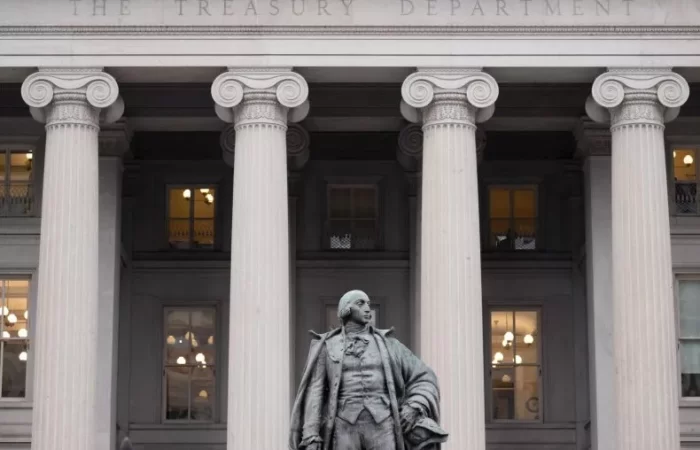The possibility of the United States joining other major powers in resolving the dearth of diplomacy hinges largely on the course of domestic U.S. politics.

In a recent analytical piece by Peter Baker, the White House correspondent for the New York Times, he highlights a concerning trend in the realm of international diplomacy. Baker, while commemorating the twenty-fifth anniversary of the Good Friday Agreement on Northern Ireland alongside President Joe Biden, made an observation that should give professional diplomats and the public at large pause for thought. According to Baker, “such diplomatic breakthroughs have become a thing of the past.” In recent years, countries, particularly the United States, have shown a greater inclination to break treaties and international agreements rather than sign new ones. Baker goes on to say that while it may be too early to proclaim the death of diplomacy, it is certainly in short supply at present. This is a sobering realization that calls for introspection and a renewed commitment to fostering international cooperation and collaboration. The lack of diplomacy on the global stage is not only detrimental to peace and stability but also poses a threat to economic growth and the welfare of nations worldwide. As a global community, we must make a concerted effort to promote diplomacy and hold nations accountable for their commitments to international agreements. Failure to do so would be a disservice to future generations and the progress that has been made in the past.
In his recent article for the New York Times, Peter Baker raises the question of whether diplomacy is dead in the United States. While Baker primarily focuses on formal agreements as a measure of diplomatic success, it is important to recognize that successful diplomacy extends beyond treaties and can also include informal understandings that help to deescalate volatile situations. However, Baker’s concerns are not entirely unfounded, and it is worth exploring the reasons for the current dearth of diplomacy.
In considering the reasons for the decline in diplomacy, we can use the three levels of analysis that political scientist Kenneth Waltz once used to explain the causes of war. Baker focuses on the international system as a major factor in the lack of diplomatic progress. Specifically, he highlights the renewed competition between major powers on the scale of the Cold War and the apparent unwillingness of Moscow and Beijing to compromise with the West. However, historical examples like the original Cold War demonstrate that major international agreements are still possible even in times of intense rivalry. Therefore, explanations at this level for the lack of diplomacy may not be entirely convincing.
Furthermore, if we examine the geopolitical circumstances facing Russia and China, it becomes clear that there is little reason for either country to avoid diplomacy. For Russia, diplomacy can play a crucial role in preserving its great power status as it faces economic and military decline. Similarly, for China, diplomacy can help secure a major role in the international system as it continues to rise in strength. Therefore, while Baker’s concerns about the lack of diplomacy may be warranted, we need to examine more deeply the reasons why countries may avoid diplomacy and work towards addressing those underlying factors.
In conclusion, while formal agreements may not be the only measure of successful diplomacy, it is important to acknowledge the current lack of progress in this area. By examining the reasons for the decline in diplomacy, we can work towards finding ways to encourage more productive diplomatic efforts, particularly in the context of major power competition. Ultimately, successful diplomacy requires a willingness to seek compromise and a recognition of the mutual benefits that can be achieved through peaceful negotiation.
“Rome does not have friends, Rome has interests ” – Julius Ceasar

Putting African Aspirations First
A second level of analysis—national political systems—provides more cogent explanations for the current dearth of diplomacy. The rise of anti-globalist populism provides much of the story here, and Baker correctly mentions the ascendance of that brand of populism during the administration of President Donald Trump as a big factor as far as the United States is concerned. In the current hyper-partisan U.S. political environment, Republicans attuned to their populist party base adhere to an anti-globalism that often takes the form of opposition to any agreement with an adversary that involves compromises, as all such agreements do. For Democratic presidents, the certain prospect of being assailed by the other party for making such compromises means the path of least political risk is to forgo major new international agreements.
Many significant international agreements, including the Good Friday Agreement on Northern Ireland as well as the arms control treaties from the Cold War, are the product of months and often years of work. Such timelines include not only the negotiations that lead to the final agreement but also much earlier diplomacy that conveys shared interests, explores the boundaries of the bargaining space, and otherwise prepares the ground for signing on to a new agreement. U.S. politics that revolve around a four-year election cycle impede the sustained effort necessary for diplomatic success.
The peculiar American practice of tearing apart the upper echelons of the federal government with each change of administration has always been a problem in this regard—with domestic as well as foreign policy—but the effects have become more severe amid the intensified partisanship of the last three decades. Not only have cross-party senior appointments become much rarer than they once were, but also there is often reflexive rejection by one party of any initiative coming from leaders of the other party.
The third level of analysis—the individual leader—offers additional explanation for the absence of diplomatic agreements in situations where such agreement seems badly needed. The tragedy of the war in Ukraine, with no ceasefire agreement in sight, has much to do with the personal ambitions and now the personal political predicament of Russian president Vladimir Putin, who has staked his regime on achieving not compromise but rather victory in Ukraine. In China, the consolidation of power in one man’s hands to a greater degree than at any time since the death of Mao Zedong has meant that Chinese foreign policy, including bully-like “Wolf Warrior” diplomacy, is primarily the policy of that one man, Xi Jinping.
Trump’s proclivities are a major part of why in recent years the United States has torn up or reneged on more major international agreements than it has negotiated or signed. The line between this level of analysis and the previous one is somewhat blurry insofar as much of the Republican Party remains in thrall to Trump. But Trump put a more personalized stamp on U.S. foreign relations by posing as an ace negotiator without—as demonstrated perhaps most clearly by his handling of relations with North Korea—getting substantive results commensurate with the pose.
Powers other than the United States have the potential for rising out of the diplomatic dearth and are already demonstrating their ability to do so. This is true of China with its recent brokering of rapprochement between Iran and Saudi Arabia, of Russia with its facilitation of restored relations between Saudi Arabia and Syria, and both Russia and China regarding the expansion of the Shanghai Cooperation Organization and potential expansion of the BRICS group. By comparison, U.S. diplomacy in recent years has not appeared as productive, apart from Finland joining NATO and other Western actions in response to the Russian war in Ukraine.
The dead hand of Trump continues to weigh heavily on U.S. diplomacy. In several important areas where U.S. leadership in the more distant past had led to fruitful international agreements, the Biden administration, apparently out of an abundance of domestic political caution, has not undone the Trump administration’s damaging retreat from diplomacy. It has not reversed most of Trump’s moves that made an Israeli-Palestinian peace an ever more remote possibility, such as the relocation of the U.S. embassy to Jerusalem. It missed an early opportunity to reverse through executive order Trump’s reneging on the multilateral agreement that had closed all possible paths to an Iranian nuclear weapon (a subject on which the Trump administration intentionally tied the political hands of its successor with the way it constructed a “sanctions wall” against Iran). And it has not undone Trump’s move away from the promotion of trade through international agreements.
Whether the United States can follow other major powers in ending the dearth of diplomacy will depend heavily on the direction of domestic U.S. politics. And it will depend on getting the American electorate to understand how the compromises that are inevitable in international agreements represent not just concessions to foreign states but also sometimes an essential part of advancing U.S. interests.











